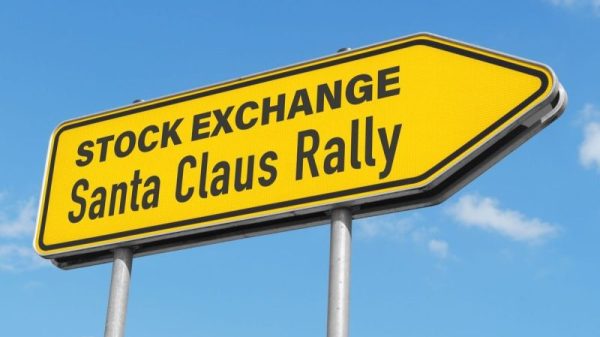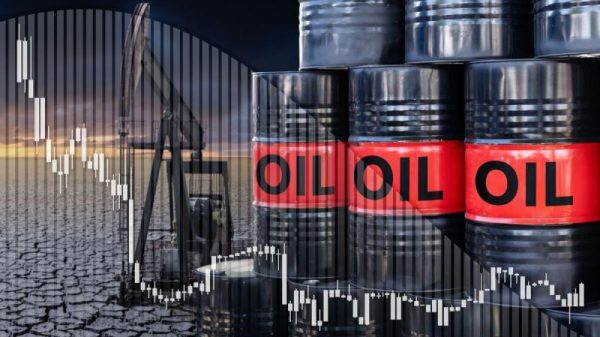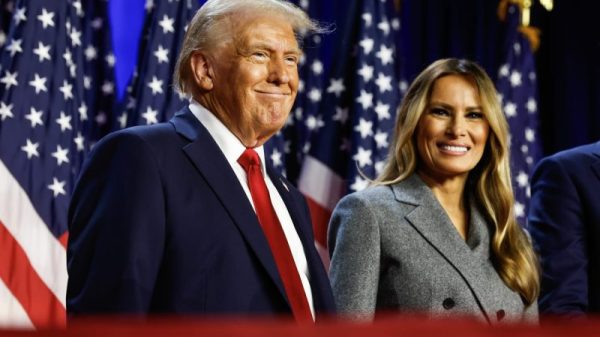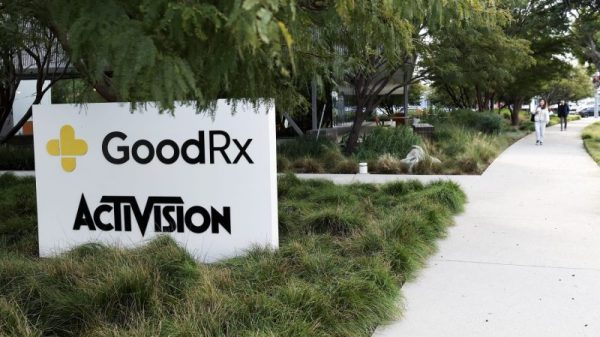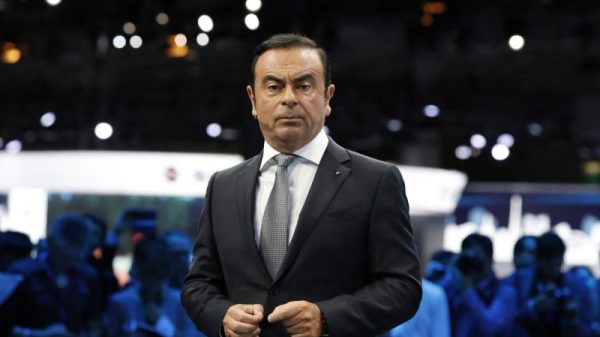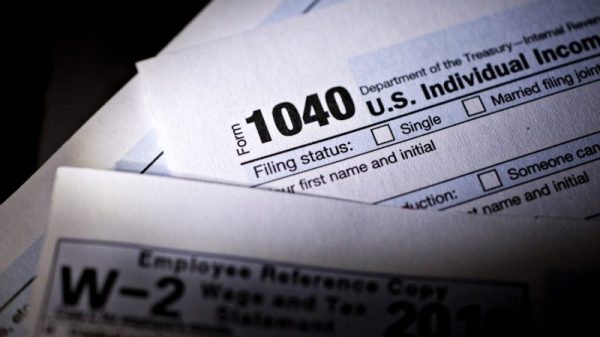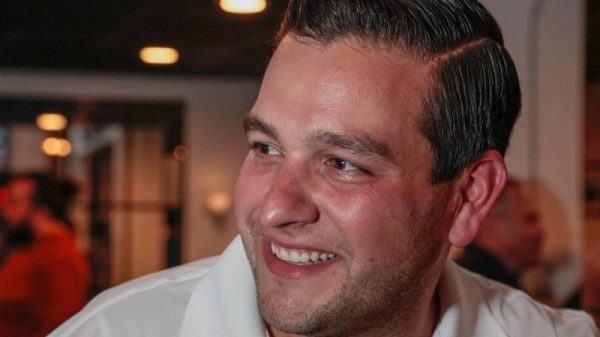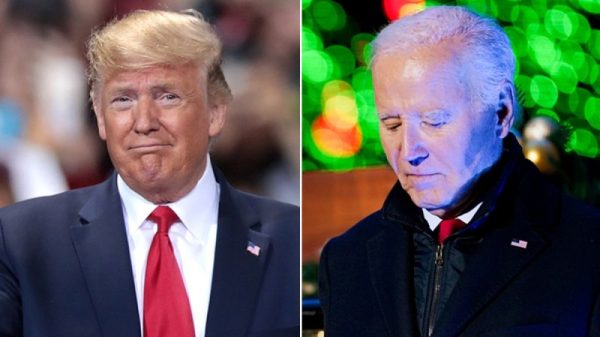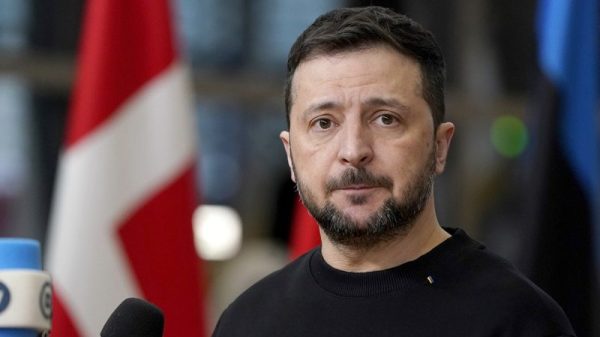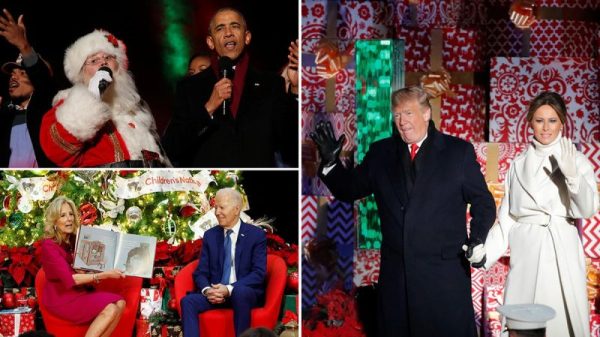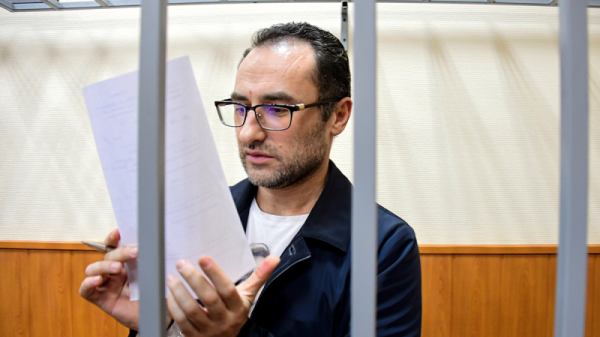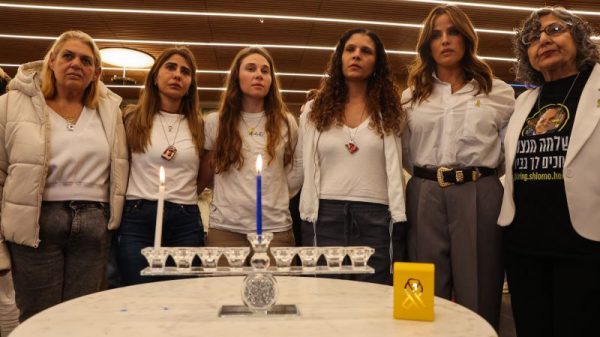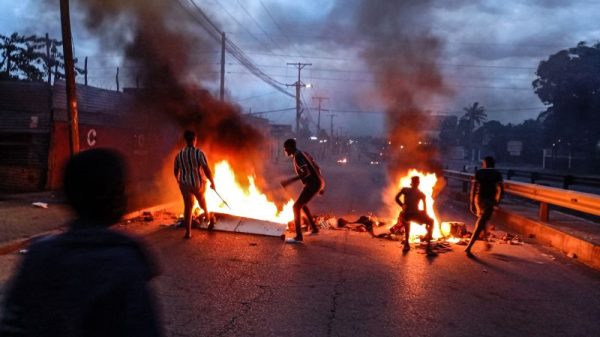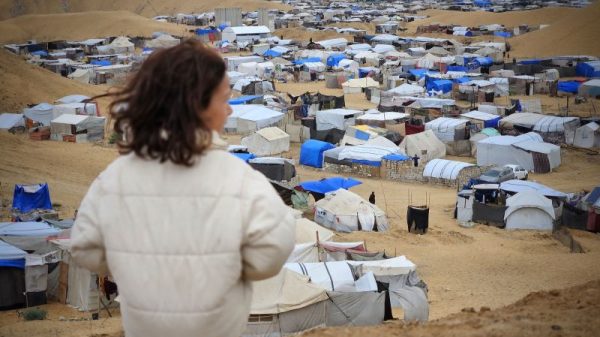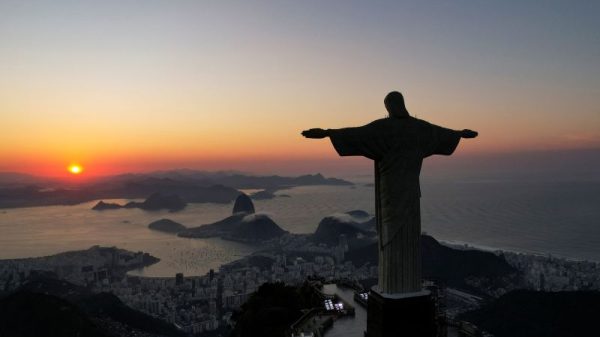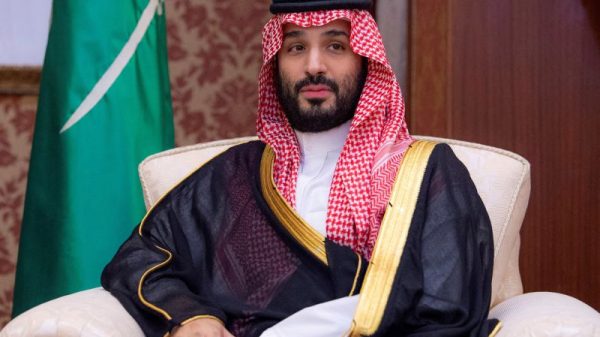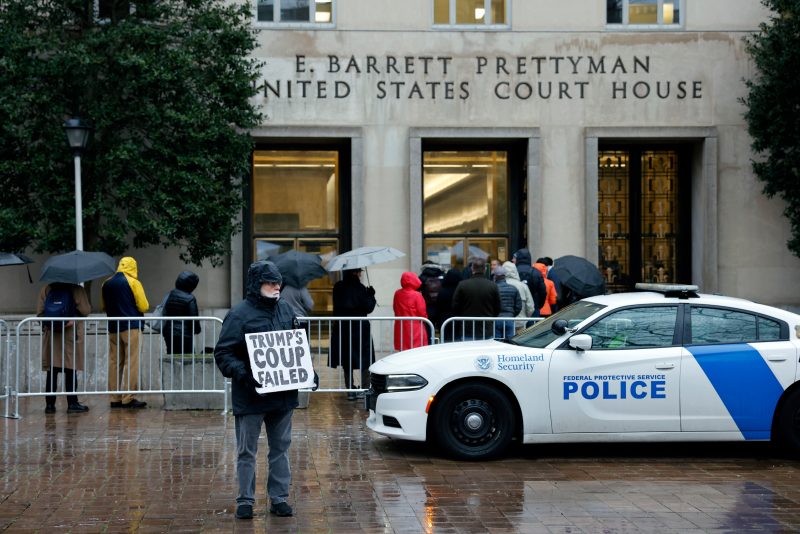A panel of three federal appellate judges expressed skepticism Tuesday about Donald Trump’s claim to sweeping immunity from criminal prosecution and concerns about the implications, with one suggesting that it would allow a future president to have a political rival assassinated by the military without repercussions.
Trump argues that he cannot be tried for trying to overturn the 2020 election results because he was acquitted by the Senate of inciting the Jan. 6, 2021, Capitol attack. James Pearce, a Justice Department lawyer, called that “an extraordinarily frightening” proposition. The three judges on the U.S. Court of Appeals for the D.C. Circuit tasked with reviewing Trump’s claims, which were rejected by his trial judge last month, appeared to agree during the hour-long hearing.
“A president could sell pardons, could sell military secrets, could order SEAL Team 6 to assassinate a political rival?” Judge Florence Y. Pan asked. “Would such a president be subject to criminal prosecution if he’s not impeached?”
D. John Sauer, representing Trump, insisted that for any crime connected to a president’s “official duties,” the “political process” of impeachment and conviction by the Senate “would have to occur” before prosecution. He predicted that if a president was involved in murder, he would be “speedily” impeached.
The panel could issue a ruling at any time, potentially delaying the March trial that Trump is seeking to push back until after the presidential election, in which he is the leading Republican candidate.
The hearing — which included references dating back to George Washington’s tenure — showed how the historic prosecution of Trump has raised difficult questions, largely avoided for more than two centuries, about the limits of presidential power and the consequences of presidential crimes. No president has been charged with a crime before, and both Trump and his attorneys warned that the case would open “a Pandora’s box” for future presidents to be charged with all manner of crimes or to serve in fear of facing such charges when they left the White House. Trump has already vowed, if reelected, to hire a special prosecutor to “go after” President Biden and his family.
“It’ll be bedlam in the country,” Trump said after the hearing, speaking at a hotel he used to own near the courthouse. He left without taking questions from reporters.
In court, Pearce responded that Trump’s singular actions had brought the country to this point.
“Never before has there been allegations that a sitting president has, with private individuals and using the levers of power, sought to fundamentally subvert the democratic republic and the electoral system,” he said. Trump’s case does not augur “a sea change of vindictive tit-for-tat prosecutions in the future. I think it reflects the fundamentally unprecedented nature of the criminal charges here.”
Trump was not required to attend the hearing but chose to do so. As Pearce made that point, Trump quietly shook his head in disagreement. Otherwise he appeared to listen impassively from the crowded courtroom gallery as the judges challenged his attorney’s contentions.
Trump’s argument is that the judges should use the same reasoning that led the Supreme Court to give Richard M. Nixon immunity from civil lawsuits for official acts in 1982. In that case, the justices said fear of lawsuits “could distract a President from his public duties” and was an “intrusion on the authority and functions” of the executive. But as Judge J. Michelle Childs pointed out, Nixon was pardoned by his successor, indicating “an assumption that [he] could be prosecuted” criminally after leaving office.
Sauer said that situation was different because Nixon’s alleged crimes involved “purely private conduct” — an assertion Pearce rebutted forcefully, noting that the Republican was accused of using the CIA to interfere in an FBI investigation. But Sauer later suggested that anything a president does while in office is likely to be an official duty, saying the fact that the indictment against Trump “focuses solely on acts before he left office” is “a telling indication that were dealing with official acts.”
Judge Karen L. Henderson, the lone Republican appointee on the panel and a jurist historically protective of presidential power, expressed some concern about Sauer’s warning of “the floodgates” of prosecutions that could open. But she said it was “paradoxical to say that [Trump’s] constitutional duty to take care that the laws be faithfully executed allows him to violate criminal laws.” She also said case law over the past two centuries indicates that “whether a man in the street, or a president … you can be held criminally liable” for various acts.
Both Henderson and Pan noted that Trump was now making the exact opposite argument of the one he made at his impeachment trial, when his lawyers told senators that the criminal justice system was the appropriate venue for accountability. Pan quoted Trump’s lawyer in that case saying, “We have an investigative process in this country to which no former officeholder is immune.”
Pan, who seemed most dubious of Trump’s arguments, said the former president’s double-barreled claims of immunity — that he was immune for official actions he took as president, and that he could not be charged criminally because his impeachment trial ended in an acquittal — actually worked against each other. For the former president to argue that he can be prosecuted only after a conviction by the Senate, she said, he is quietly conceding that he can be charged and does not have the immunity he claims. Sauer disputed the judge’s characterization, saying the impeachment process is an important check on prosecutions that satisfies constitutional concerns.
A different panel of the D.C. Circuit ruled last month that in the context of a lawsuit brought by police officers and lawmakers injured on Jan. 6, Trump does not have absolute immunity because campaigning to stay in office is not an official act. Trump has said he plans to appeal that ruling to the Supreme Court as well, and Sauer maintained that Trump’s meetings with members of Congress and the Justice Department about overturning the election, along with his tweets falsely claiming election fraud, all count as protected official conduct.
The government asked the court to follow the ruling of U.S. District Judge Tanya S. Chutkan, who is overseeing Trump’s trial and concluded that there is no criminal immunity for former presidents for either public or private conduct. If the judges say there is immunity for presidential duties, Pearce said, “there are some hard questions about the nature of official acts,” which would lead to “extraordinarily complicated litigation” over what qualifies.
When the court rules might be as important as how it rules. Sauer asked at the hearing for any ruling against Trump to be put on hold for appeals to the full D.C. Circuit and the U.S. Supreme Court. Special counsel Jack Smith had asked the Supreme Court to take up the immunity question without waiting for the D.C. Circuit to rule first; that request was denied. The Justice Department has taken the position in the past that a sitting president cannot be prosecuted.
“He’s going to lose; the only question is how long will the delay be,” said Saikrishna Prakash, a professor at the University of Virginia’s law school who studies presidential authority. “There are people who might think some sort of immunity might be necessary, but the facts aren’t helpful to the former president.”
Smith’s office asked the court to issue a final order within five days of its opinion, potentially putting Trump’s trial back on a fast track. If judges do so after ruling against Trump, the Supreme Court could, if it wishes, take up his legal challenge while letting the trial go forward.
The judges also pressed both sides on a brief from the nonprofit American Oversight arguing that Trump does not have the right to appeal before trial because he is making a novel claim. That position is based on a line in a 1989 Supreme Court decision that was not about immunity, in which then-Justice Antonin Scalia wrote that a person must wait until after a trial to appeal unless there is “an explicit statutory or constitutional guarantee that trial will not occur.”
Both the Justice Department and Trump disagreed; Pearce called it “a small point of common ground” that a former president had a right not to be tried until courts had determined whether he is immune from prosecution. Even if it would help the government to have the appeal thrown out on jurisdictional grounds, Pearce said, “doing justice means getting the law right.”
A ruling by the D.C. Circuit will affect only one of the four prosecutions Trump faces. But Trump is making similar arguments in state court in Georgia, where he is charged in an alleged conspiracy that covers much of the same conduct. The other two cases do not involve Trump’s conduct as president. In New York, state prosecutors accuse him of falsifying business records before he took office. In Florida, Smith’s office has charged him with mishandling classified documents after leaving office.
Walt Nauta, Trump’s longtime personal aide and his co-defendant in the Florida case, sat with the former president in court Tuesday.
Tom Jackman, Olivia Diaz, Isaac Arnsdorf, and Ann E. Marimow contributed to this report.

